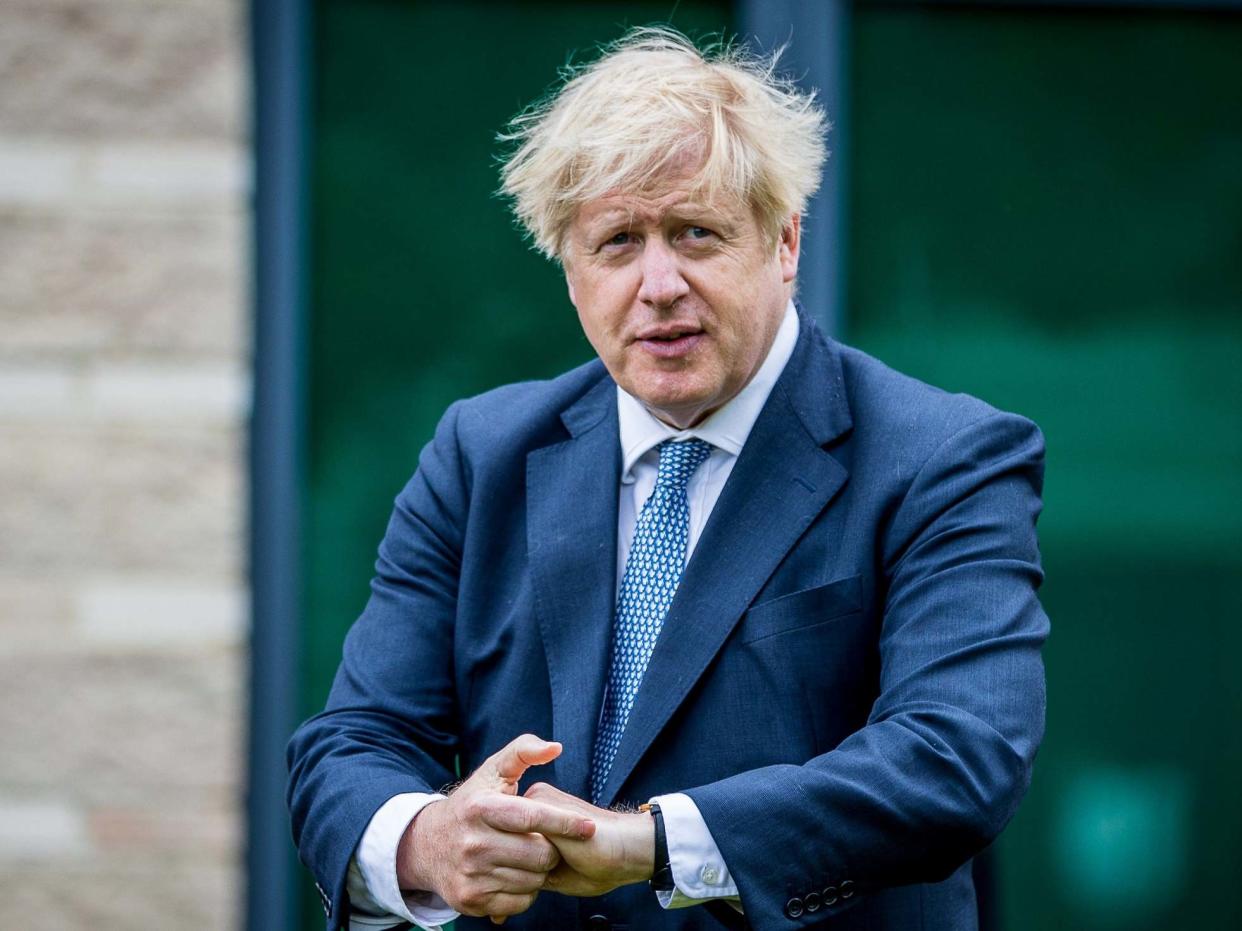The government is playing a very dangerous game over its lockdown strategy

Leicester was just an early skirmish. The next month will be decisive. As the government grapples with a proliferation of local Covid-19 flare-ups across Greater Manchester, West Yorkshire and elsewhere, we’re about to find out whether we can use local measures to prevent a nationwide outbreak of the virus.
The prime minister sees a further national lockdown as the "nuclear option" and wants to deploy more conventional weaponry from the government’s anti-coronavirus armoury. But the government’s approach is disabling the most potent weapon in its arsenal: the British people.
Last week, it’s said, the prime minister’s top team war-gamed how a proliferation of local outbreaks, including in the capital, could be dealt with. We might wonder why this hadn’t been done before since it’s been clear for many weeks that acting quickly to close down local outbreaks offered the most promising route to keeping the rest of the country moving.
The upshot was Thursday’s late-night Twitter storm from Matt Hancock, the health secretary imposing new restrictions in Greater Manchester. But the public response has been bewilderment at the apparent inconsistencies in the government’s plan. The new restrictions don’t look like the ones that we’ve just come out of – for example, people can go to pubs but can’t meet in each other’s gardens. Meanwhile, Swindon, which is also seeing a rapid increase in cases among the highest rates of weekly infection in the country, hasn’t even made it onto Public Health England’s weekly watchlist. And all of this came at the end of a week that began with bafflement about the decision to quarantine holidaymakers coming from almost Covid-19-free parts of Spain. It all seems at odds with the "common sense" approach the government has been so keen for us to adopt.
The jumpy response betrays a continuing strategic vacuum at the heart of the government’s Covid-19 approach. Combining ad hoc measures in an apparently unsystematic way and communicating it on social media can only serve to undermine public adherence and risk a bigger outbreak.
The government’s task isn’t an easy one. Anything less than a full lockdown is inevitably going to involve nuanced restrictions. But that also means the rules are beyond the ability of the state to enforce, so their effectiveness hangs on public understanding of, and consent to, the government’s approach. If tighter restrictions are to be imposed on people at short notice, residents need to know ahead of time exactly what they will need to do and the conditions that will have led to the shift. We are falling short of that collective approach.
The strategy vacuum has been obvious for months. Flickers of a more considered approach emerged when the prime minister announced the Joint Biosecurity Centre alert levels back in May. But since then, this semi-mythical body has seemed more like a political manifestation of Heisenberg’s Uncertainty Principle, its status far from clear. After so many months to prepare, we’re bound to conclude that the vacuum is the strategy. Perhaps this is because the authorities believe that each area is so unique that the precise measures handed down to residents should differ across time and place.
But this is a dangerous game to play. As the public struggles to fathom the ever-shifting instructions, the clear risk is that many will simply check out and the virus will spread across the country once again. Blaming the public for not sticking to the rules in these conditions simply won’t wash.
What the government should be doing is setting out clear rules that will be applied consistently under different levels of alert governed by transparent metrics. Tied to those alert levels must be the fiscal firepower needed to support workers and businesses so they don’t face a choice between their livelihoods and spreading the virus that will guarantee failure to contain it.
The battle against Covid-19 is at a critical moment. The cost of a national breakout would be catastrophic. The government needs to recruit people to the cause of containing it by setting out its strategy and explaining it clearly. In this war, victory cannot be secured solely from the commanding heights of Whitehall. It will be won or lost in living rooms up and down the land.
Ian Mulheirn is executive director at the Tony Blair Institute for Global Change
Read more
I’m over 50 and this is why I'm all for lockdown if it’s needed
Ministers still planning to open all English schools in September
Elderly people ‘may be asked to stay at home’ to avoid new lockdown
Experts warn pubs may need to close again to halt second wave – live
What the are latest changes to coronavirus lockdown restrictions?

